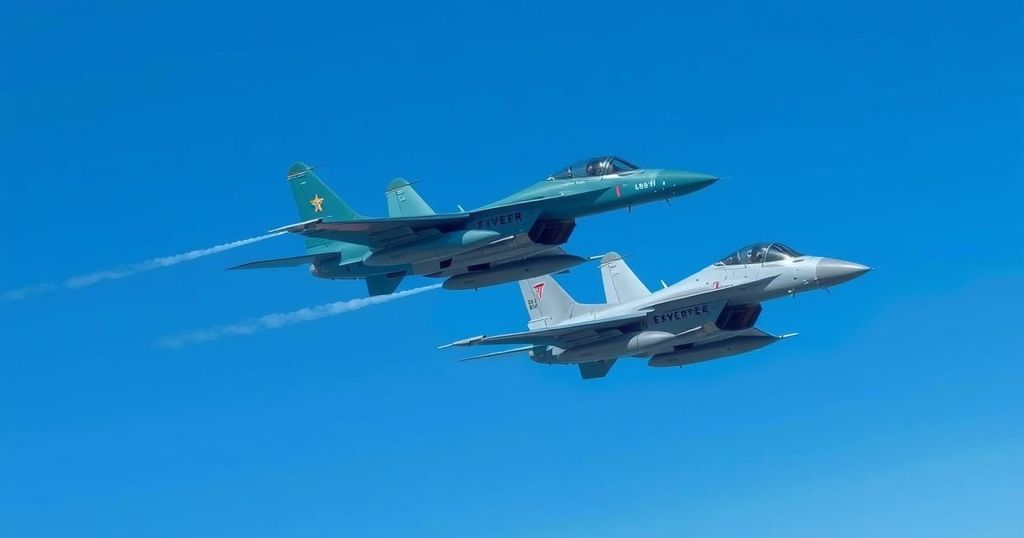Politics
- BACKED ECONOMIC COMMUNITY OF WEST AFRICAN STATES, AFRICA, AFRICOM, ASIA, BURKINA FASO, CHAD, CHINA, COMMUNITY OF, CORRUPTION, COUP, DAKAR, DEBY, DI, DIOMAYE BASSIROU FAYE, EUROPE, EUROPE/ASIA, FRANCE, ID, MALI, MILITARY COUP, MOROCCO, NIGER, NORTH AMERICA, REGIONAL COOPERATION, RUSSIA, SAHEL, SECURITY, SENEGAL, STATE, THIAROYE, TRUMP, U. S. AFRICA COMMAND, UNITED STATES, WASHINGTON, WEST AFRICA
Clara Montgomery
Senegal and Chad Assert Sovereignty by Ending French Military Presence
Senegal and Chad have taken significant steps to redefine their relationships with the French military, emphasizing a need for sovereignty and national priorities. Senegalese President Faye announced that French military presence will soon end, while Chad withdrew from a defense agreement with France. The Sahel region has seen a political shift with recent coups rejecting French influence and looking towards new partnerships. The U.S. is consequently encouraged to engage more positively with African nations.
In late November, Senegal and Chad independently reshaped their relations with the French military, signaling a shift towards asserting national sovereignty. Senegal’s President Diomaye Bassirou Faye, reflecting on the historical context of past grievances, declared that “soon there will be no more French soldiers in Senegal.” Meanwhile, Chad announced its withdrawal from a defense cooperation agreement with France, emphasizing a desire to redefine its strategic partnerships in light of national priorities. Recent political upheavals across the Sahel, notably coups in Mali, Burkina Faso, and Niger, have embraced themes of sovereignty, leading to the expulsion of French troops and a pivot towards alternative partnerships, including Russia.
Chad has exhibited similar sovereignty sentiments under Mahamat Déby, who has reassessed the nation’s international relationships following his ascension to power. A notable departure from previous foreign reliance was marked when U.S. troops were also asked to leave Chad in early 2024. Conversely, while Senegal has remained stable politically, the recent electoral successes of President Faye and Prime Minister Ousmane Sonko reflect a shift towards a left-leaning, Pan-Africanist political discourse that seeks to challenge traditional post-colonial ties with France. The changing political dynamics throughout the Sahel highlight a growing desire for nations to renegotiate colonial-era relationships.
The evolving situation poses a challenge for U.S. policymakers, contrasting their relatively clean historical legacy in the region against France’s colonial baggage. Moreover, the American strategy of counterterrorism has not always garnered trust in the Sahel, underscoring a need for the United States to engage in genuine partnerships focusing on sovereignty and mutual benefit, rather than exerting pressure through military presence. French President Emmanuel Macron’s recent diplomatic engagements with African leaders indicate an attempt to recalibrate France’s foreign relations, seeking to establish partnerships that prioritize trade over security frameworks, which suggests a possible pathway for U.S. policy formulation as well.
Overall, the recent developments in Chad and Senegal represent a growing assertion of sovereignty within the region, reminiscent of a broader pushback against Western military influence in Africa. The United States is encouraged to view this movement positively, providing an opportunity for more collaborative and respected engagements that move beyond mere military alliances.
Senegal and Chad’s recent shifts regarding their military relations with France illustrate a broader regional trend towards asserting sovereignty among African nations. Historical grievances rooted in colonialism and recent political changes, including uprisings and the rise of new leaderships, have contributed to the growing resistance against French influence in West Africa. Notably, the political landscape in the Sahel has seen significant instability, with several countries experiencing coups that replaced longstanding regimes with juntas more sympathetic to sovereignty narratives, often accompanied by a shift towards partnerships with countries like Russia. The current resistance against French military presence also poses implications for U.S. interests in Africa, necessitating a reconsideration of how American power is perceived in the region, particularly after the failures of French-led counterterrorism efforts.
In conclusion, the actions of Senegal and Chad to distance themselves from French military influence underscore a significant shift towards asserting national sovereignty in the Sahel. This trend reflects a growing movement among African nations to redefine their international relationships. For the United States, there exists an opportunity to develop more equitable partnerships that respect African autonomy and respond to the current political climate, moving beyond militarized engagements toward collaborative approaches that prioritize mutual benefits and acknowledgement of sovereignty.
Original Source: responsiblestatecraft.org








Post Comment